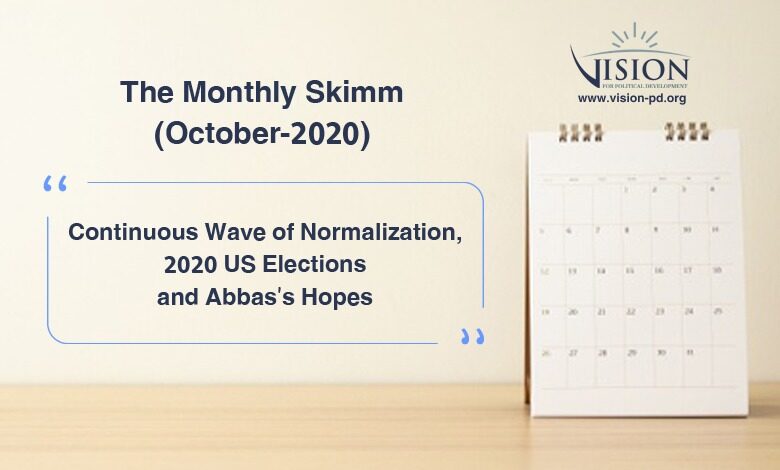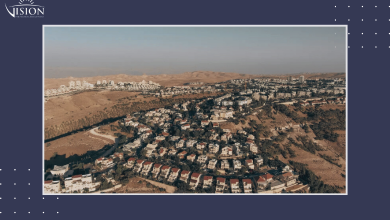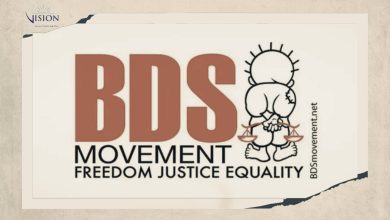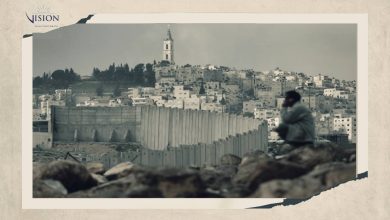The Monthly Skimm (October): Continuous Wave of Normalization, 2020 US Elections and Abbas’s Hopes

Normalization is not a magical recipe for the Middle Eastern crises
In the Middle East, there is an elitist political orientation that portrays normalization as the remedy for overcoming the crises in the region. However, any normalization treaties, particularly ones involving Saudi Arabia, should consider the following realities (Farouk, 2020): First, normalization would not guarantee peace and stability. Second, normalization would not facilitate American interests in the region. Third, normalization would not engender moderation and liberalization in the Middle East, including in Saudi Arabia. Fourth, normalization would not shorten the distance between Middle Eastern nations and their people. Fifth, normalization would not repair the damage to Saudi image in the US. Sixth, Middle Eastern countries, like Saudi Arabia, will not help solve internal matters of normalization with Israel.
But countries still are still following the process
In its attempts to enhance normalization in the region, Israel used the chance of transitional period of Sudan after the protest movement against al-Bashir. But the agreement will probably be threatened (Ottaway, 2020) in the case where the military leaves political life and submits to the rule to the rule of a civil government.
Many believe that the protests for liberty were a direct cause of the Sudan-Israel normalization. It is important to mention that the contact between Sudan and Israel was not new (Yaari, 2020); indeed, attempts at negotiation started in 1950 when Sadiq al-Mahdi and Jaafar Nimeiri shook hands with Menachem Begin in 1981. Bashir himself attempted to contact Tel-Aviv after breaking with Iran.
Khartoum’s decision towards Israel can accelerate (Yaari, 2020) the normalization process even more than the UAE or Bahrain. Other Arab countries (e.g., Qatar, Oman, and Morocco) are waiting for the US elections before announcing any public attitudes about normalization with Israel.
Israel is not giving on involving other Muslim countries (Yaari, 2020):
Besides, Israel has been working on widening the normalization to include countries with Muslim majorities in Africa and Asia. It has not given up on pushing the American foreign ministry to widen and accelerate normalization between Israel and other Muslim majority countries. As a result, Pompeo has prioritized persuading the third largest country in the world, Indonesia, to normalize its relations with Israel. Nevertheless, normalization with Indonesia may take another direction, such as easing economic and touristic restrictions.
In contrast, Pakistan’s ideological rigidity (Kaura, 2020) makes Pakistan-Israel normalization unlikely in the foreseeable future, in spite of a warm orientation of the Pakistani elite towards Israel.
“Oman plays it safe on Israel”
She has been adopting a moderate and balanced foreign policy approach (Ulrichsen, 2020), which explains the pull back from normalization with Israel. She does not want to increases tension and in the region and negatively influence its relations with Iran. Furthermore, Mascot does not agree to follow Bahrain and UAE because she believed the agreement was designed to interfere with US elections, which contradicts its principle of abstaining from the political meddling with other nation states.
Arab people and normalization?
Arab Individuals who support normalization with Israel are accused of being traitors (Ahmad, 2020), and in the case of the authoritarian regimes that boycott Israel, their pro-Israel viewpoint can result in imprisonment and abuse. Is there a hidden orientation among the Arabs public that is aligns itself with normalization or are they too frightened to reveal their pro-Israel stance? The coming years should prove revelatory.
What does Biden’s presidency mean to the conflict?
The victory of Biden in the election may skew the Trump administration’s course in the region (Pletka, 2020). Trump’s vision was built upon the idea of aligning Sunni Arab states in the Middle East against Iran. If Biden followed his promises to reactivate the nuclear agreement with Tehran, this would challenge all the achieved processes by the Trump administration.
Irrespective of the radically different approaches of Trump and Biden to the Palestinian-Israeli conflict (Elgindy, 2020), what’s going happening on the ground will produce similar outcomes, to wit, the impossibility of a two state solution, and the intensification of a one state reality.
The evidence comes from the new settlement policies
Israeli Settlement policies in the West Bank in the area outside of the security barrier suggests that the Israeli government seeks to kill the two state solution (Makovsky, 2020), because expansion outside of the barrier makes it impossible to separate Palestinians from Israelis based on the two state perimeter. The authorization of over 600 new units won’t happen without Trump’s consent.
Hopes of Abbas
Fatah leader Mahmoud Abbas hopes that a Biden presidency would prove advantageous towards a conflict resolution. Biden promised Abbas to repeal Trump’s measures against the Palestinians, including the “Deal of the Century”, and to reopen the US PLO office in Washington, and renew financial aid to UNRWA and the PA. This would re-strengthen Abbas’s position internally, and increase his leverage to evade a presidential election again, even if the parliamentary election were to take a place again (Menachem, 2020).
Is Abbas Serious about the reconciliation with Hamas?
Let’s present this reality; the battle between Dahlan and Abbas escalates. Abbas tries to use Hamas under the guise of “fake reconciliation” for the cooperation against Dahlan, despite its refusal. Additionally, Abbas is confronting the reality that al-Barghouty family, the family of Marwan, is more aligned with Hamas than al-Muqataa (Inbari, 2020). How would the appetite towards reconciliation appear to Abbas after overcoming his internal threats? Would it change depending on the outcome of the US elections?
Dahlan still has a hope with Rajoub
Rajoub is considered more flexible with Dahlan (Kuttab, 2020); so, if the elections were organized during Abbas’s absence, Rajoub would not impose a Veto against Dahlan. As he promised, he would “not to put any veto against any party or individuals” in the elections.
Finally, how do Saudi officials approach the conflict
Saudi formal attitude towards ending the Israeli-Palestinian Conflict has always been aligned with American interests, even if it contradicted Palestinian official orientations. When Clinton expressed his hope for the Saudis to urge Arafat to accept his bridging proposal in 2000, the Saudi ambassador Bandar remarked, “If Arafat rejects this, it won’t be a mistake, it will be a crime” (Ross, 2020).
- The MonthlySkimm is a narrative brief of the political opinions and analysis conducted by considerable think tanks about the Palestinian-Israel conflict.
References
Ahmad, I. (2020, 10 8). Arabs Taking Risks for Peace: Stories from the Frontlines of People-to-People Contact with Israelis. Retrieved from The Washington Institute: https://www.washingtoninstitute.org/policy-analysis/view/arabs-taking-risks-for-peace-stories-from-the-frontlines-of-people-to-peopl
Elgindy, K. (2020). What does a Trump or Biden presidency mean for Israel and Palestine? Retrieved from The Cairo Review of Global Affairs: https://www.thecairoreview.com/global-forum/what-does-a-trump-or-biden-presidency-mean-for-israel-palestine/
Farouk, Y. (2020, 10). What Would Happen If Israel and Saudi Arabia Established Official Relations? Retrieved from Carnegie: https://carnegieendowment.org/2020/10/15/what-would-happen-if-israel-and-saudi-arabia-established-official-relations-pub-82964
Inbari, P. (2020, 10). The Long-Simmering Feud between “Inside” Palestinians and the Outsiders from Tunis . Retrieved from Jerusalem Center for Public Affairs: https://jcpa.org/the-long-simmering-feud-between-inside-palestinians-and-the-outsiders-from-tunis/
Kaura, V. (2020, 10 6). Pakistan’s Israel dilemma. Retrieved from Middle East Institute: https://www.mei.edu/publications/pakistans-israel-dilemma
Kuttab, D. (2020). How Palestinians agreed on elections. Retrieved from Middle East Institute: https://www.mei.edu/publications/how-palestinians-agreed-elections
Makovsky, D. (2020, 10). Israel Expands West Bank Settler Units: Where Demography Meets Geography. Retrieved from The Washington Institute : https://www.washingtoninstitute.org/policy-analysis/view/israel-expands-west-bank-settler-units-where-demography-meets-geography
Menachem, Y. B. (2020, 10). The Palestinians’ View of the U.S. Elections. Retrieved from Jerusalem Center for Public Affairs : https://jcpa.org/the-palestinians-view-the-u-s-elections/
Ottaway, D. (2020, 10 28). A Bankrupt Sudan Faces More Trouble at Home over Peace with Israel. Retrieved from Wilson Center: https://www.wilsoncenter.org/article/bankrupt-sudan-faces-more-trouble-home-over-peace-israel
Pletka, D. (2020, 10 24). Could we lose the progress we’ve made in the Middle East? Retrieved from American Enterprise Institute: https://www.aei.org/op-eds/could-we-lose-the-progress-weve-made-in-the-middle-east/
Ross, D. (2020). Bandar speaks out: the changing landscape in the Mideast. Retrieved from The Hill: https://thehill.com/opinion/international/521597-bandar-speaks-out-the-changing-landscape-in-the-mid-east
Ulrichsen, K. C. (2020, 10 27). Oman plays it safe on Israel. Retrieved from Middle East Institute: https://www.mei.edu/publications/oman-plays-it-safe-israel
Yaari, E. (2020, 10 26). The Sudan Agreement: Implications of Another Arab-Israel Milestone. Retrieved from The Washington Institute: https://www.washingtoninstitute.org/policy-analysis/view/the-sudan-agreement-implications-of-another-arab-israel-milestone





